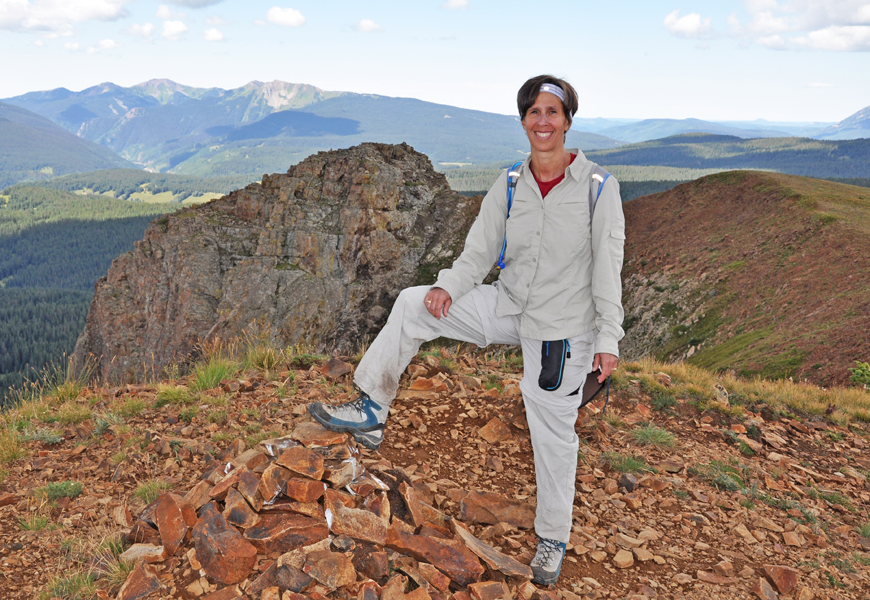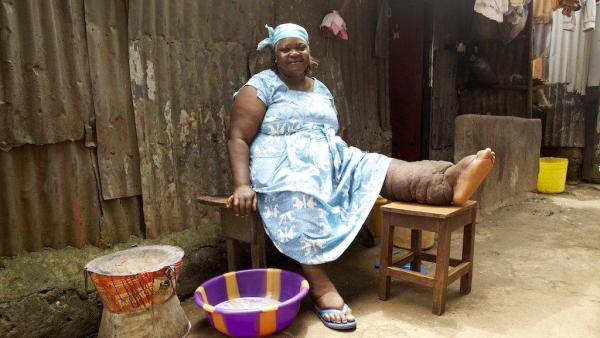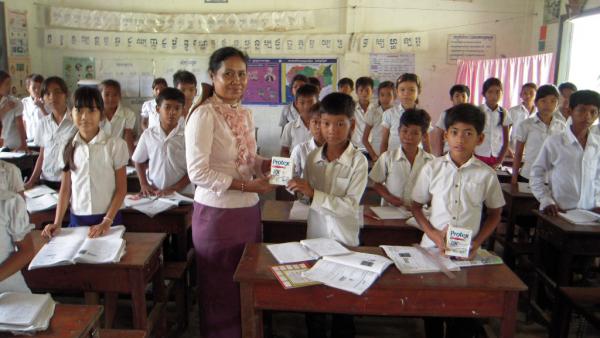Summiting Kilimanjaro to See the End of Neglected Tropical Diseases
A version of this blog originally appeared in the Huffington Post on June 11, 2015.
I have never been one to shy away from a challenge. Whether taking the train into New York City by myself as a young teen to attend dance classes with Alvin Ailey, or deciding at the age of 40 to abandon a career in the arts to get involved in the HIV/AIDS crisis, or, just ten years ago, taking the helm of Helen Keller International, one of the oldest NGOs in the U.S.
This July, I’ll be taking on another challenge – a physical one. I’m joining the END Fund on its Summit to See the END climb of Mount Kilimanjaro to raise awareness and funds to help eliminate neglected tropical diseases (NTDs). Little known here in the United States, these bacterial and parasitic infections are all too common in the world’s most impoverished communities, and can cause blindness, chronic and severe pain, disability and malnutrition. They infect one in six of the world’s people, including half a billion children – yet they are all preventable and treatable!

Support Team Helen Keller’s Kilimanjaro climb and follow their incredible journey on Facebook.
I am an experienced “amateur” hiker, with many 15-mile day treks under my belt, but none at this altitude. Some of my friends call me courageous; others think I am crazy to do this at the age of 60. In addition to intense training on a treadmill at high incline, I am doing much else to prepare, assembling the right boots and clothes for the many different climate zones we will face.
But there is one thing I will carry that, above all else, will be essential to keeping me focused and able to reach the summit. That is the inspiration provided by the millions of people living with neglected tropical diseases, hundreds of whom I have met on my travels with Helen Keller Intl.
They are mothers facing the daily challenges of not being able to care for themselves or their families because of the physical and emotional pain caused by their disease.
Women like Katialou, who lives in a remote village in Burkina Faso. She had been living with the excruciating pain of trichiasis, which is the blinding stage of trachoma, a bacterial infection of the eye and the leading cause of infectious blindness worldwide. If left untreated, the infection causes the eyelashes to turn inward and rake the cornea, leaving a person to literally blink themselves blind.
Living with this horrible condition for more than a decade, Katialou gradually lost much of her vision. She relied on her youngest son to use tweezers to pluck her eyelashes out to help manage the pain. Dependent on her family to help her with basic needs, she described her life with trachoma as a living death.
And Hannah in Sierra Leone, who was left unable to wear shoes or even walk because of Lymphatic Filariasis, also known as elephantiasis, a parasitic infection carried by mosquitoes. She lived with the painful, elephant-like swelling of her right leg for nearly 20 years, unable to care for her children or even leave her home. Some in her village labeled her a monster, afraid they will catch her “big foot,” even though it is not contagious.

They are men like Aloumbé, a truck driver in Cameroon who experienced rapid vision loss due to onchocerciasis, or river blindness, another parasitic infection transmitted by black fly bites. He was forced to give up his local trucking business, leaving him unable to support his wife and five children. He thought he might pass the business on to his 16 year old son André Marie, but he, too, was starting to experience vision loss from river blindness.
And they are children, like Munineath, a 10 year old girl in Cambodia. She was made so thin and weak from intestinal worms that she was forced to miss school and the education that will give her any chance of breaking the cycle of poverty that continues in her village.
Thankfully, each of these people found the help they needed through Helen Keller International programs, which deliver prevention and treatment to more than 85 million people in Africa and Asia each year.
We were able to reach Katialou with the eyelid surgery she had been praying for, and Hannah, with medications to treat the pain and information on how to better manage her disability.
We were able to provide Aloumbé and André Marie with medicines to stabilize their condition and allow them to return to work and school.
And we introduced a national School Health Curriculum in schools like Munineath’s, providing vital lessons about hand washing and safe drinking water, as well as regular doses of deworming medication. She is now healthier and happier and an active participant in the classroom. She shares what she has learned with her parents and relatives so that the positive practices get passed on in her community.

But there are still millions more in need and we are working with wonderful partners like the END Fund to reach even more so that soon these scourges will be things children hear about in stories, not life altering challenges they are forced to live with.
So as I prepare for my Kilimanjaro challenge, I carry in my heart the people who I am climbing for, who, every day, face challenges just to survive with the physical and emotional pain of NTDs. My climb will be a small gesture of solidarity and a symbol of hope that a brighter future is in sight. Elimination of NTDs can be reached, just like to the top of the mountain I’ll climb. And we are all with Katialou, Hannah, Aloumbé, André Marie, little Munineath and the millions of others on their journeys toward a better life.









